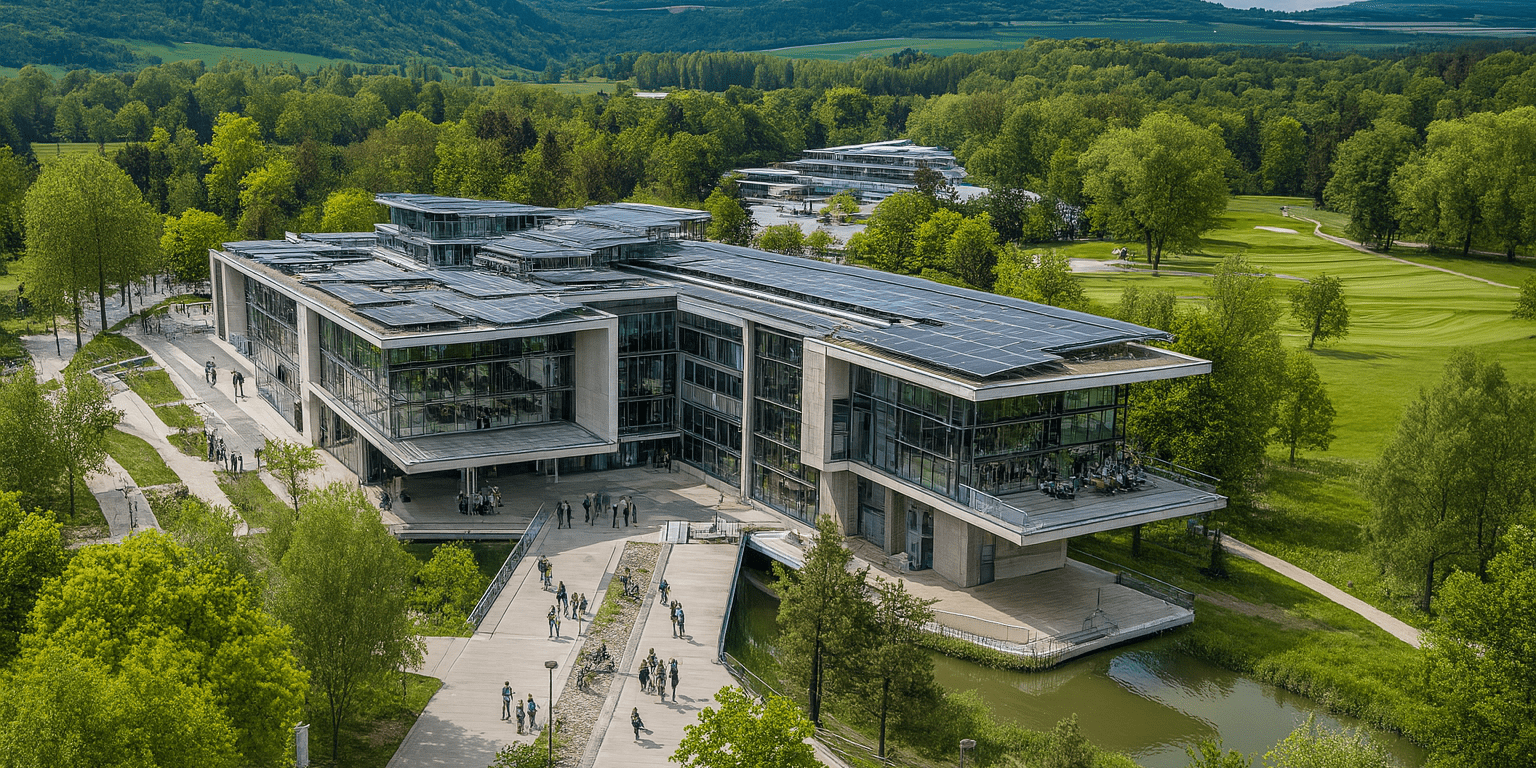A new eco-label is helping to guide the sustainable events industry.
Sustainable events can now be officially certified. Since January 2025, organisers have been able to use the new ‘Blue Angel for environmentally friendly events’ eco-label bearing the DE-UZ 236 mark. The associated award criteria were published on the Federal Environment Agency’s website in July 2024. This gives the event industry an independent, state-supported seal that considers ecological and social sustainability in depth.
The Blue Angel has been recognised in Germany for decades as an eco-label for products that are particularly resource-efficient. The new category marks the first time that the label has been opened up to the event sector. The aim is to provide visitors, clients and event organisers with clear guidance on how to systematically record, reduce and communicate the environmental impact of events in a transparent manner.
It has a broad range of applications for different event formats
The new eco-label can be used for a variety of event formats. It applies to business events, such as conferences, trade fairs and meetings, as well as cultural events, such as concerts, theatre festivals and exhibitions. Sports events and hybrid formats can also be certified, provided the requirements are met.
The label is awarded to individual events, not to companies or service providers. Applications can be submitted by event agencies, trade fair companies, public institutions or cultural organisations, provided they are responsible for implementation. Applications are submitted digitally using special software provided by the Federal Environment Agency.
The focus of the environmental criteria
The award criteria cover different areas of event management. The focus is on initiatives that reduce greenhouse gas emissions and conserve natural resources. The most important areas of action are:
- Sustainable mobility: It is mandatory to choose a conveniently located event venue. It is essential to promote environmentally friendly arrival and departure options for participants and staff. This could include offers such as public transport tickets, bicycle parking spaces, and shuttle services with alternative drive systems.
- Renewable energies and resource conservation: The use of electricity from renewable sources is mandatory. In addition, energy-efficient devices and eco-labelled materials, such as recycled paper and certified office supplies, must be used. Organisers must submit a resource management concept analysing the potential for savings.
- Sustainable catering: The principle of plant-based nutrition is applied to catering. A predominantly vegetarian or vegan menu is mandatory. At the same time, at least half of all food used must be organically grown. Measures to prevent food waste and a plan for disposing of organic waste are also part of the criteria.
- Waste avoidance and the circular economy: Reusable cups and crockery must be used. Disposable items made from plastic or composite materials can only be used in exceptional circumstances. Any temporary structures, such as stages, must be dismantled, with the materials being either reused or disposed of separately.
- Event technology: Existing technology at the venue should be prioritised to reduce the need for transport and new purchases. Event organisers must draw up plans for the energy requirements of technical equipment and implement energy-saving measures. Using energy-saving lighting technology and digital systems is also recommended.

Environmentally friendly travel: The Blue Angel promotes sustainable mobility concepts, such as using bicycles and local transport, at events.
Social criteria and inclusion
In addition to ecological requirements, social sustainability also plays a role. The seal requires, among other things, barrier-free access, information in simple language, and inclusive communication channels. These requirements ensure that events are planned not only in an ecologically responsible manner, but also in a socially fair way.
Flexibility is achieved through the use of mandatory and optional criteria
As events vary greatly in terms of size, target group and infrastructure, the catalogue of criteria is based on a system of mandatory and optional criteria. This means that smaller or more specialised events can also gain certification without compromising the quality of the eco-label.
Overall, the label has two main objectives. Firstly, it aims to reduce harmful climate emissions. Secondly, it aims to measurably reduce material usage and energy consumption. The transparency of the criteria also enables progress to be documented and improvements to be realised from event to event.
Significance for the industry
The Blue Angel offers event organisers and service providers a structured way of integrating environmental responsibility into their work. Although many sustainability measures have been in place for some time, there has been no overarching standard to make this visible and comparable until now.
The ecolabel provides visitors with reliable guidance. It can be a confidence-building element in communication, particularly in the context of major events, trade fairs and music festivals. In future, public sector clients will also be able to use the label as a criterion in tenders.
A contemporary approach to sustainable events
The introduction of the Blue Angel for events has created a new instrument that visualises environmental and social responsibility within the events industry. The criteria combine proven environmental management approaches with practical, up-to-date requirements. Organisers are provided with clear guidance on how to make their events more sustainable. At the same time, technology companies, venue operators and caterers are incentivised to make their services more sustainable.
From 2025, the Blue Angel will therefore be a seal of quality not only for products, but also for an event industry that takes responsibility.






